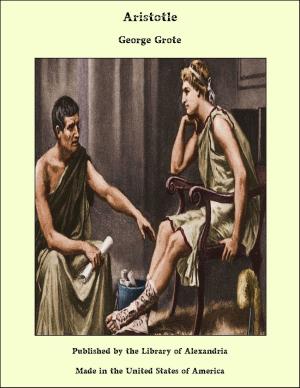Priapeia sive diversorum poetarum in Priapum lusus or Sportive Epigrams on Priapus
Nonfiction, Religion & Spirituality, New Age, History, Fiction & Literature| Author: | Unknown | ISBN: | 9781465580641 |
| Publisher: | Library of Alexandria | Publication: | March 8, 2015 |
| Imprint: | Language: | English |
| Author: | Unknown |
| ISBN: | 9781465580641 |
| Publisher: | Library of Alexandria |
| Publication: | March 8, 2015 |
| Imprint: | |
| Language: | English |
The Priapeia, now for the first time literally and completely translated into English verse and prose, is a collection of short Latin poems in the shape of jocose epigrams affixed to the statues of the god Priapus. These were often rude carvings from a tree-trunk, human-shaped, with a huge phallus which could at need be used as a cudgel against robbers, and they were placed in the gardens of wealthy Romans, for the twofold purpose of promoting fertility and of preventing depredations on the produce. Most of these facetiae are by unknown authors. Although they appear in early editions of Vergil, and are attributed to that writer by J. M. Catanaeus, it is, to say the least, doubtful that he played any part in their authorship. Politian attributes them to Ovid; others, such as François Guiet, hold Domitius Marsus to be their author. The general opinion is that they are the collective work of a group of beaux esprits who formed a reunion at the house of Maecenas (the well known patron of Horace), and who amused themselves by writing these verses in a garden-temple consecrated to Priapus. Subsequently Martial and Petronius added several imitative epigrams, and eventually the whole were collected in one volume by the writer of the opening verses. Catullus, Tibullus, Cinna and Anser are also credited with a share in the work. The cento consists chiefly of laudatory monologues by Priapus himself, jocosely and satirically written, in praise of his most prominent part--the mentule--and of fearful warnings to thieves not to infringe upon the Garden God's domains under pain of certain penalties and punishments, obscene and facetious. At times a witty epigram sparkles from the pages, notably numbers 2, 14, 2 5, 37, 47, 69 and 84, the Homeric burlesque in number 69 being merum sal, whilst numbers 46 and 70 show a degree of pornography difficult to parallel.
The Priapeia, now for the first time literally and completely translated into English verse and prose, is a collection of short Latin poems in the shape of jocose epigrams affixed to the statues of the god Priapus. These were often rude carvings from a tree-trunk, human-shaped, with a huge phallus which could at need be used as a cudgel against robbers, and they were placed in the gardens of wealthy Romans, for the twofold purpose of promoting fertility and of preventing depredations on the produce. Most of these facetiae are by unknown authors. Although they appear in early editions of Vergil, and are attributed to that writer by J. M. Catanaeus, it is, to say the least, doubtful that he played any part in their authorship. Politian attributes them to Ovid; others, such as François Guiet, hold Domitius Marsus to be their author. The general opinion is that they are the collective work of a group of beaux esprits who formed a reunion at the house of Maecenas (the well known patron of Horace), and who amused themselves by writing these verses in a garden-temple consecrated to Priapus. Subsequently Martial and Petronius added several imitative epigrams, and eventually the whole were collected in one volume by the writer of the opening verses. Catullus, Tibullus, Cinna and Anser are also credited with a share in the work. The cento consists chiefly of laudatory monologues by Priapus himself, jocosely and satirically written, in praise of his most prominent part--the mentule--and of fearful warnings to thieves not to infringe upon the Garden God's domains under pain of certain penalties and punishments, obscene and facetious. At times a witty epigram sparkles from the pages, notably numbers 2, 14, 2 5, 37, 47, 69 and 84, the Homeric burlesque in number 69 being merum sal, whilst numbers 46 and 70 show a degree of pornography difficult to parallel.















